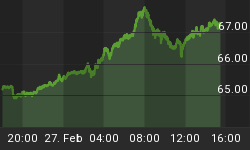However this crisis is resolved, guess who'll be footing the bill...
The World has endured these sorts of crises before. Somehowthey come to an end. What happens?
Sometimes, someone turns up who can prop up the collapsing debt mountain, and they make it grow higher, for a little bit longer. For a short while they are even called brilliant, but they leave a bigger problem than they startedwith. Eventually the thing comes crashing down and the creditors pay - always.
Whether the creditor pays through default or rapid inflation, or the mandated acquisition of government bonds by their pension fund, or the sequestration of their deposits, the result is the same: it's always the creditorwho pays.
And so they should. They lent the money, and they receive interest for taking the risk of lending. It doesn't work well if they can take the interest without the risk - for which we need only look at the nonsense of naked CDSs! No - as some bondholders are currently finding out, the creditoralways pays.
By and large the creditors in the west are the holders of about $100 trillion worth of currency denominated assets (bonds and deposits) mostly owned by savings institutions which themselves have been pumped up through tax incentives to save. Their owners are the people who are going to pay. That is good news and bad. Good for our children, who will not be saddled with this debt, and bad for us, as we will get pensions - paid in full - that buy a sandwicha month.
But until the bill finally lands on the mat, lots of earnest arguments and skilful men and women will turn up, occasionally even offering a glimmer of hope that somehow the creditors will not end up paying. Some will usher in false hopes, but the hopes will fade, until eventually - when the debt has finally become near worthless, and when even the savers realise it is so - some lucky individual will announce that the money printing and the devaluation is over. Then suddenly, as if by magic, it will be. This person will be the 20th or the 50th Treasury Secretary to make the announcement, but the announcement will stick, because everyone has accepted that the value of the old debt isfinally zero. Only then will growth start over.
All currency denominated assets will by then be effectively worthless. Until then volatility in a generally downwards direction will be the norm as false dawns get debated, and implemented, and fail. It will be very difficult to spot the end of the process, because it will only happen when finally almost everyone assumes every monetary initiative will fail. That is a necessary conditionfor a return to sensible money.
That - at any rate - was how these things got resolved in thepast. It's not very encouraging is it? Sorry.
I find my interest is shifting from the collapse, which is well underway, and which will go on in its chaotic way for a few years and will eventually consume the hugely indebted UK and USA economies, as well as the Japanese and the Europeans. Now I am wondering how to detect the nearing end of the process, when some wonderful profitable and productive opportunities will arise. We will then have the wind at our backs, with sound money and naturally re-emerging demand (albeit from a low base). In the meantime I will sit on my gold through the rises and the falls, and remind myself whenever I'm tempted to sell - which is frequently - that it's the creditors who pay, always. Until they have I must not get involved.
By the way, just in case I didn't mention it: THE CREDITORS ALWAYS PAY.















